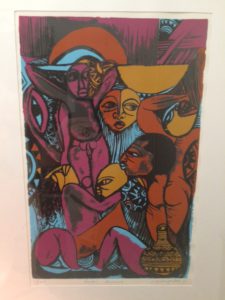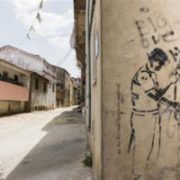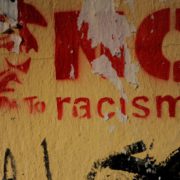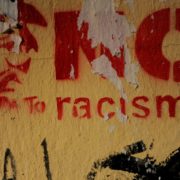Black
‘Portugal is one of the most racist countries in the EU’ – European Social Survey
– ‘No one has ever said to me that I could not rent the house because I’m black’
 Mamadou Ba is born in Senegal and has the Portuguese nationality. He is graduated, has a steady job at the Parliament, and speaks with a slight African accent. When he is calling for an apartment in Lisbon’s Parque das Nações neighborhood, he gets an appointment 2 days later. Although the tenant promises him to send an SMS with additional information, he never does. If shortly thereafter a journalist of the newspaper Público– with a Portuguese name and a Lisbon accent – calls the same tenant, he immediately gets the necessary information by phone and an appointment for the next day. In only two out of five phone calls, Mamadou and the journalist were treated the same way.
Mamadou Ba is born in Senegal and has the Portuguese nationality. He is graduated, has a steady job at the Parliament, and speaks with a slight African accent. When he is calling for an apartment in Lisbon’s Parque das Nações neighborhood, he gets an appointment 2 days later. Although the tenant promises him to send an SMS with additional information, he never does. If shortly thereafter a journalist of the newspaper Público– with a Portuguese name and a Lisbon accent – calls the same tenant, he immediately gets the necessary information by phone and an appointment for the next day. In only two out of five phone calls, Mamadou and the journalist were treated the same way.
– ‘It’s hard for blacks to find a job. There’s always a preference for whites.’
Amélia Costa is born in Guinee-Bissau and in possession of a Portuguese passport. When submitting her application for a management position, she doesn’t include a photo in her CV. After a call from the director of Human Resources, she is invited to an interview.
On entry, the director stares at her in amazement. ‘Apparently, he was expecting someone else’, she says.
The interview is going well and Amélia gets the job. When she asks the director at a later stage, why he looked so surprised when they first met, he says ‘the person I called and the person I met, didn’t seem to be the same’. ‘Since you speak without an accent, I didn’t expect you to be a black person. If you had submitted a photo with your CV, I probably would never have called you for an interview’, he confessed.
‘In Portugal, you hardly come across black people in leading positions or in the media. You’ll find them back office, in factories, kitchens, and supermarkets. We are not even given a chance to get to know us’, she explains.
– ‘The presence of black lecturers in the academic community is nil’
 ‘It isn’t true that social class eliminates racism.
‘It isn’t true that social class eliminates racism.
‘If I come somewhere, where I’ am the only black person, I will be discriminated.
It’s no question of social discrimination, it’s the color of the skin’.
‘I’ll give you some examples’, she explains in Público.
‘When I return at the airport from a trip abroad, they often direct me to the line for Non-European passports and my luggage is nearly always checked by customs’. ‘Once I entered a meeting and heard a colleague – a bit too loud – say: ‘I don’t understand what that black one is doing here.’
And something that happened to me recently in the Santa Marta hospital, when I asked for a particular department and someone showed me the way. ‘When you see an indication that says Outpatients, you turn right – can you read?’
Inocência Mata is the only black professor in the Faculty of Arts at the University of Lisbon, where she is teaching since 1990.
BOM FIM DE SEMANA








